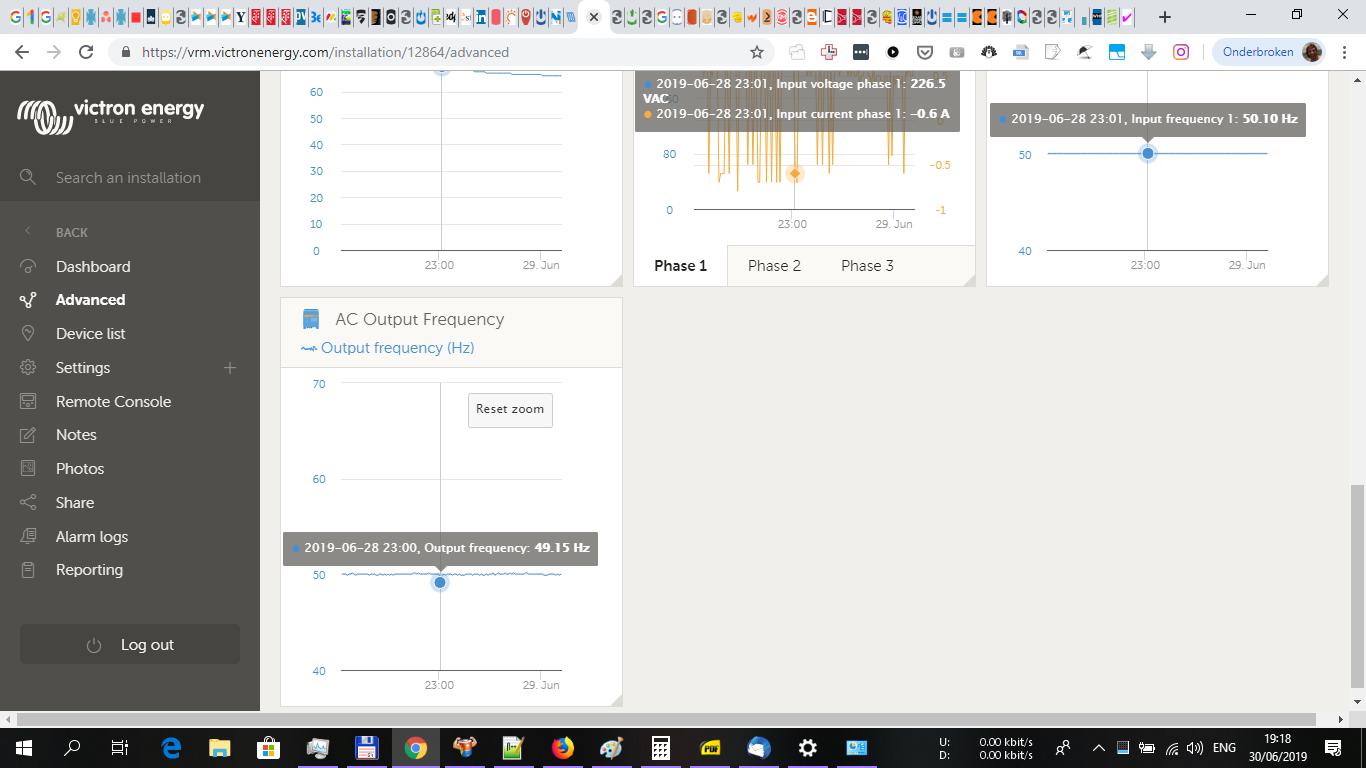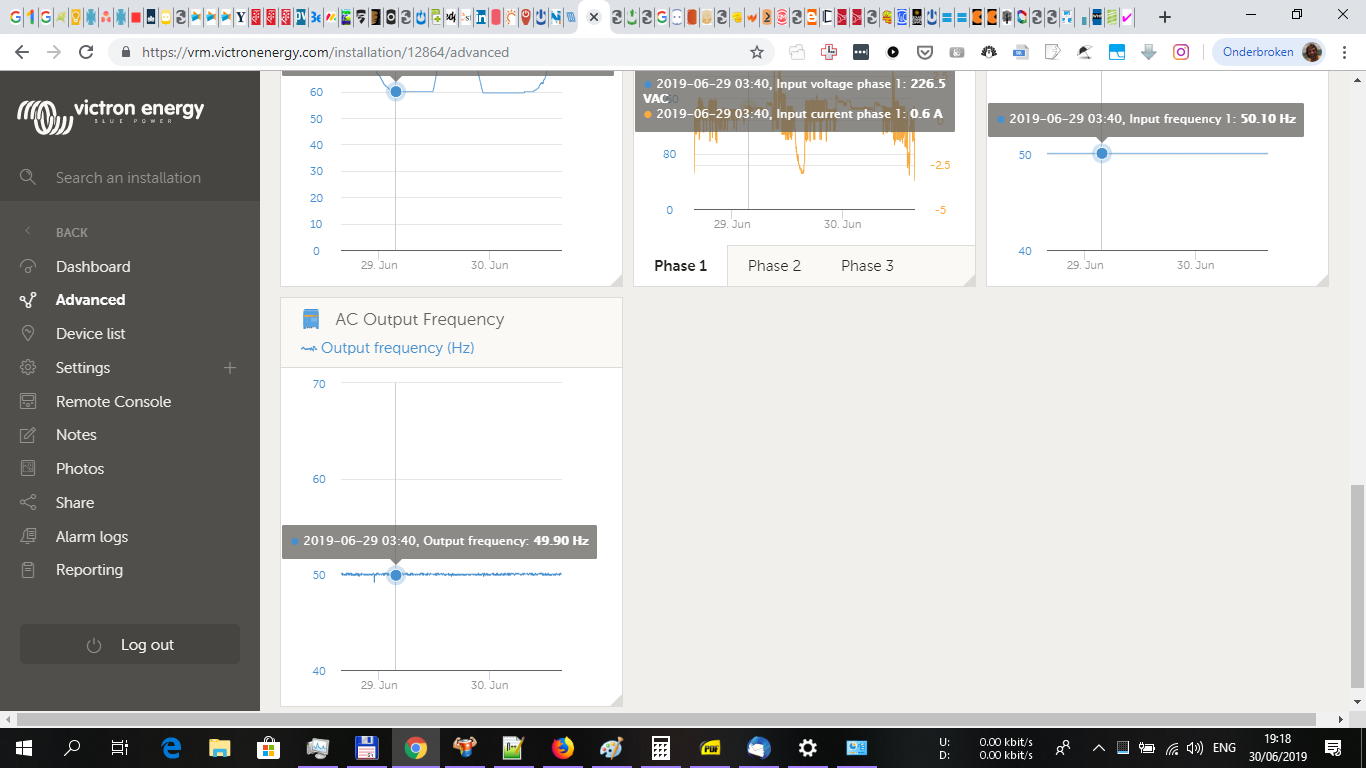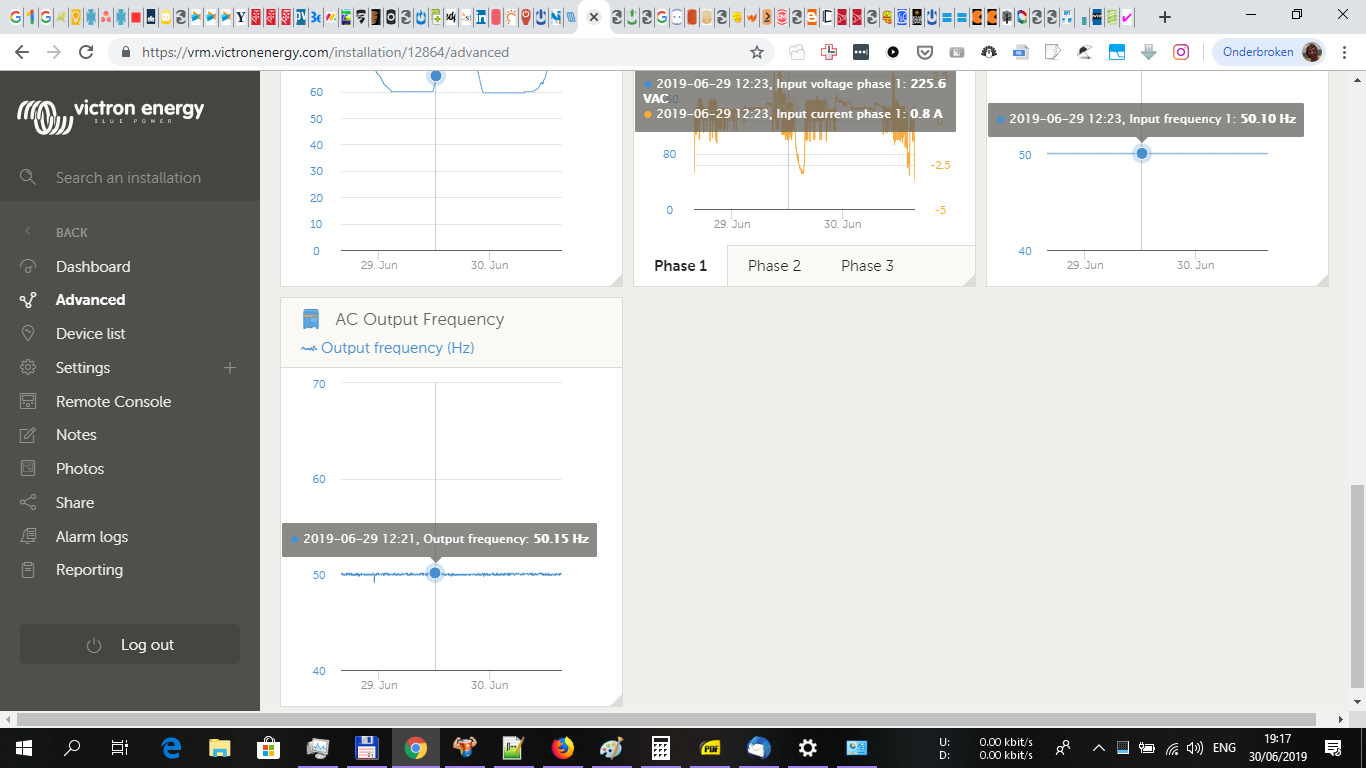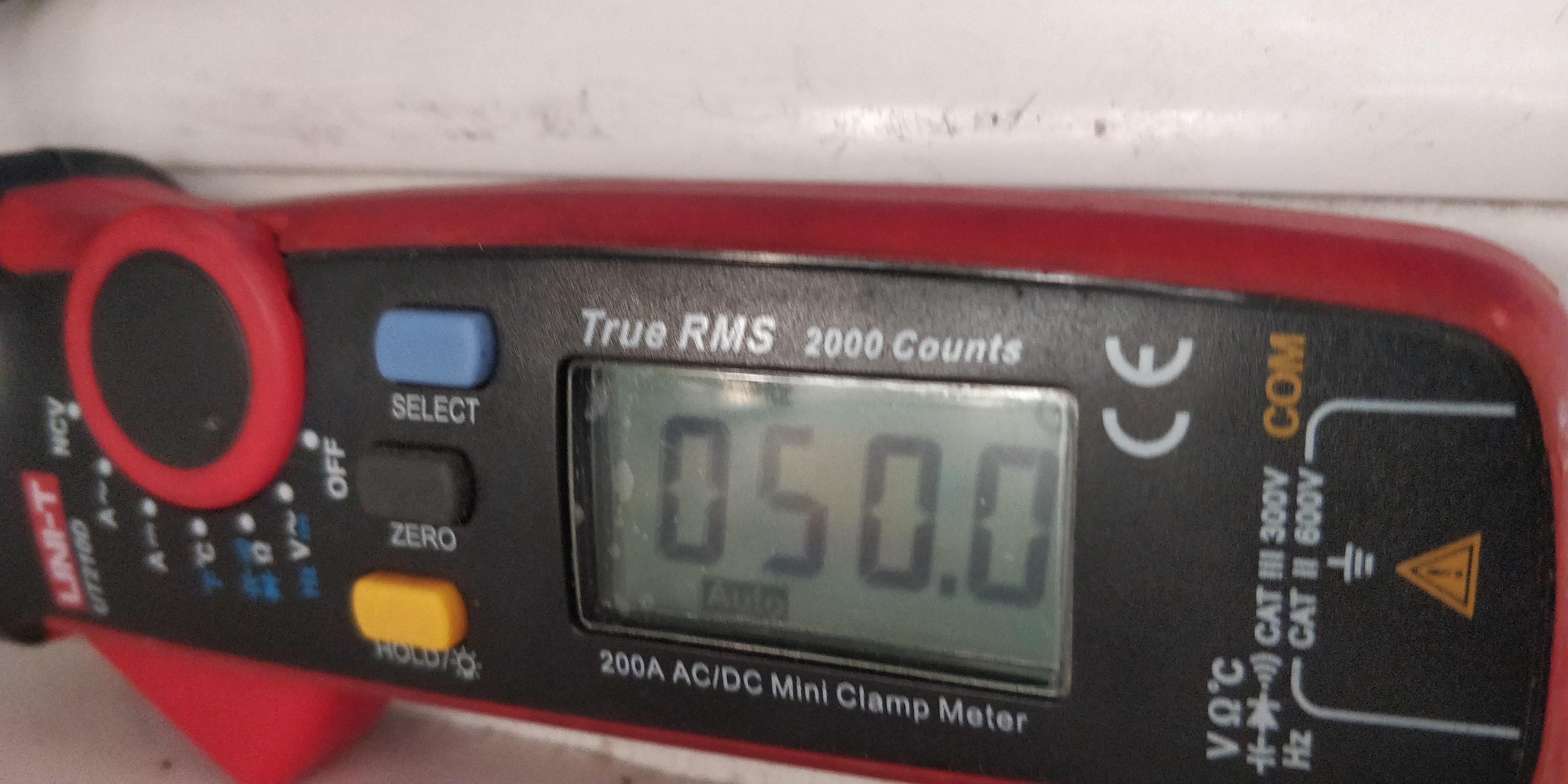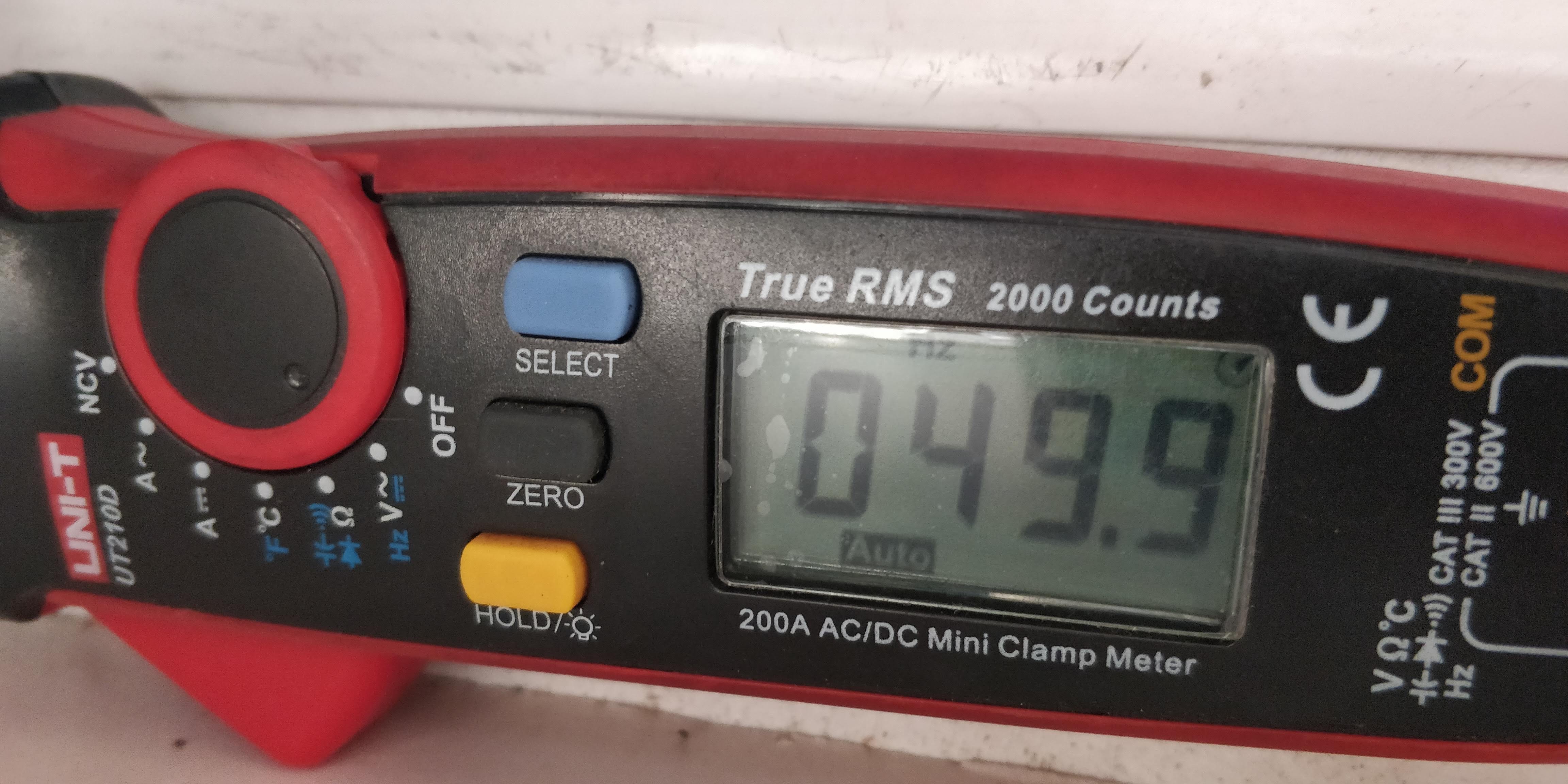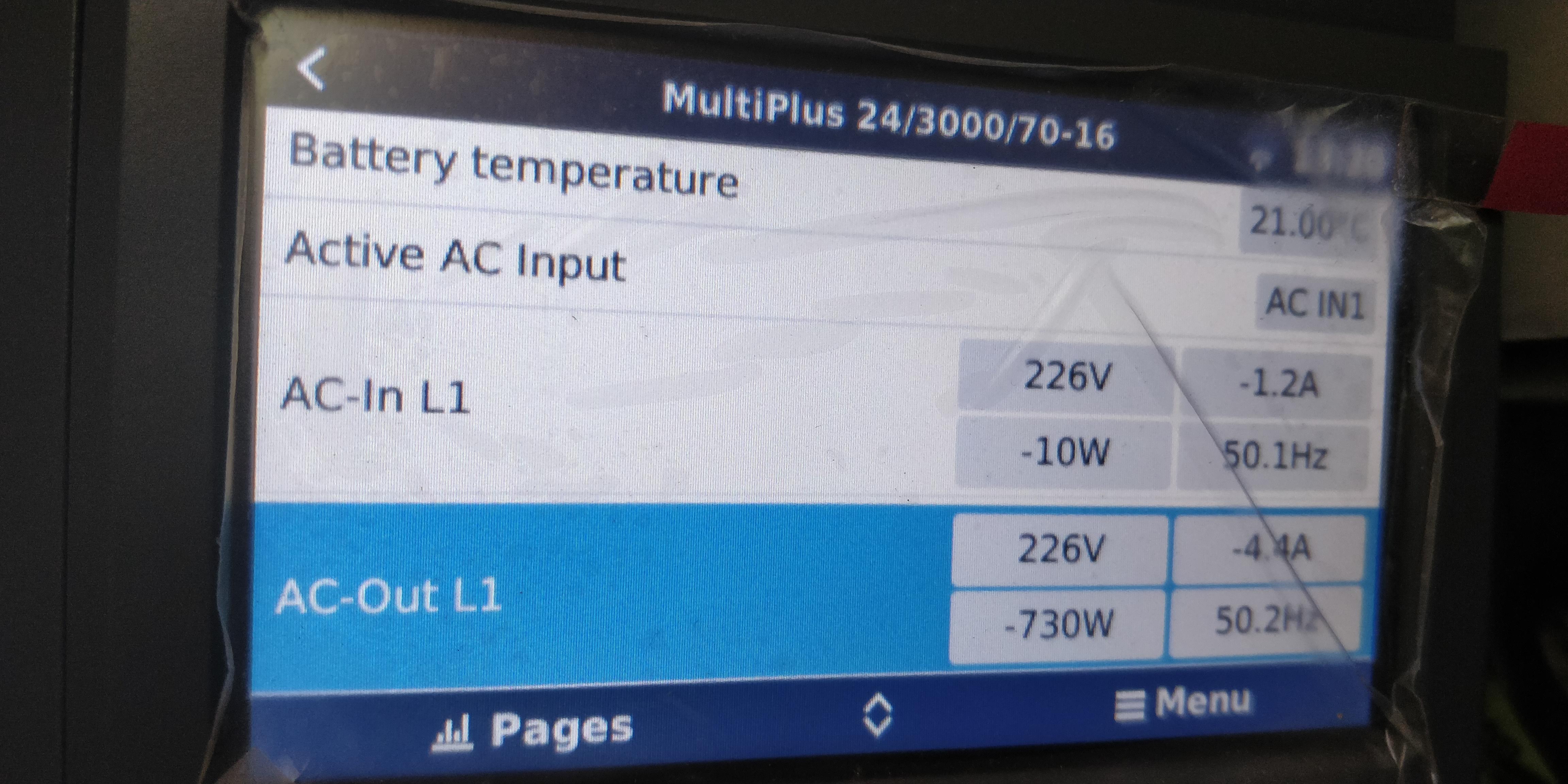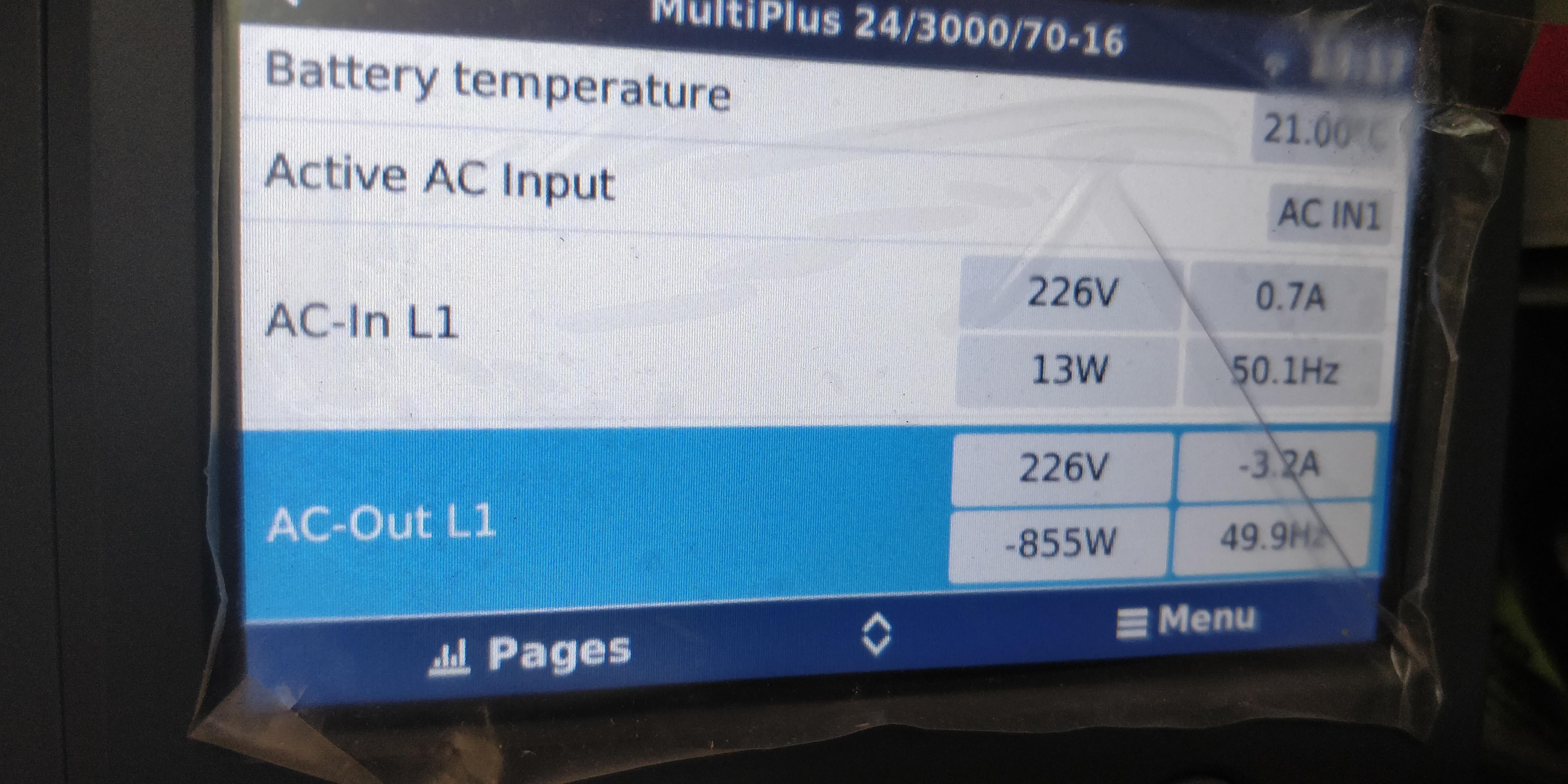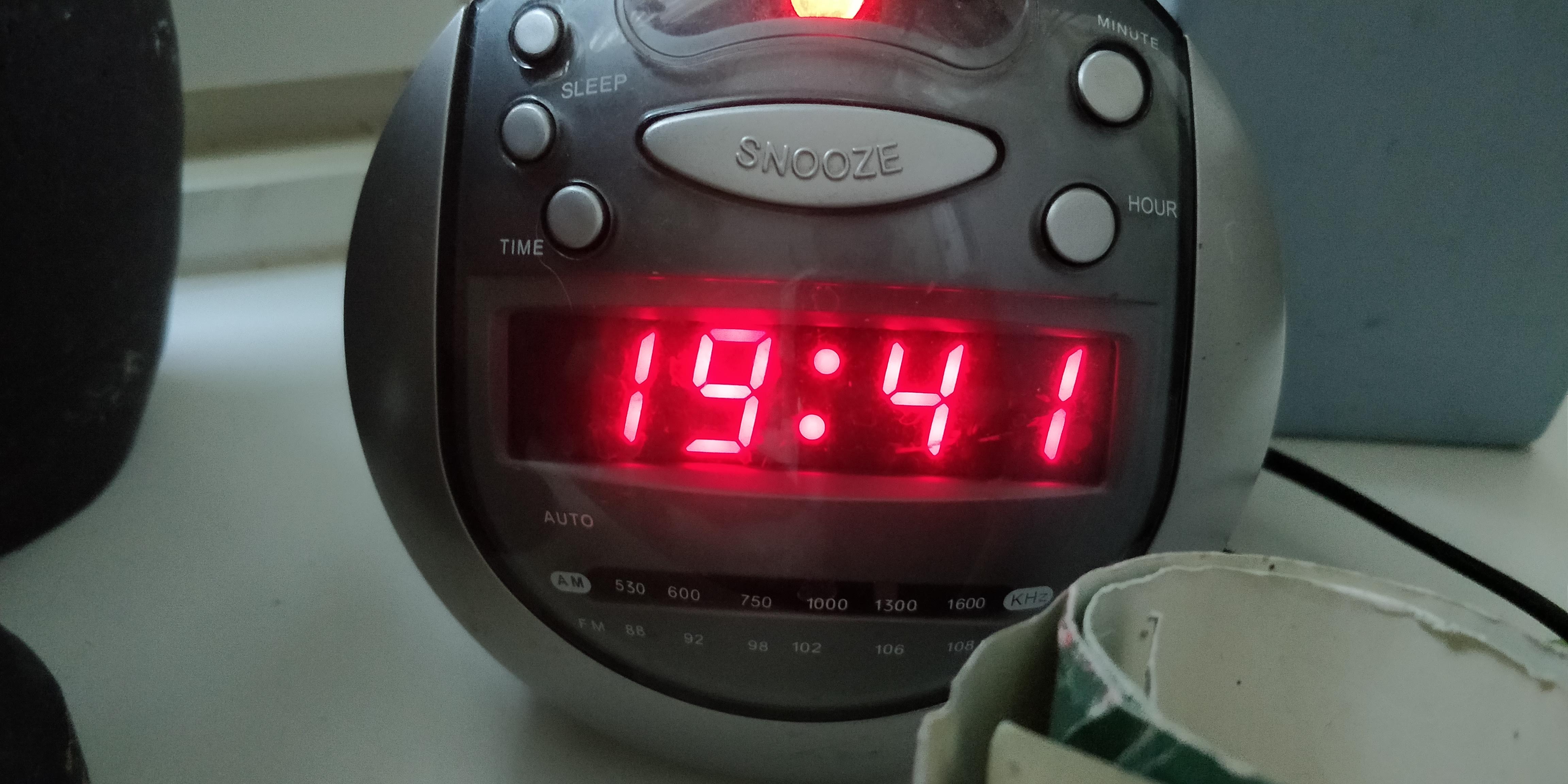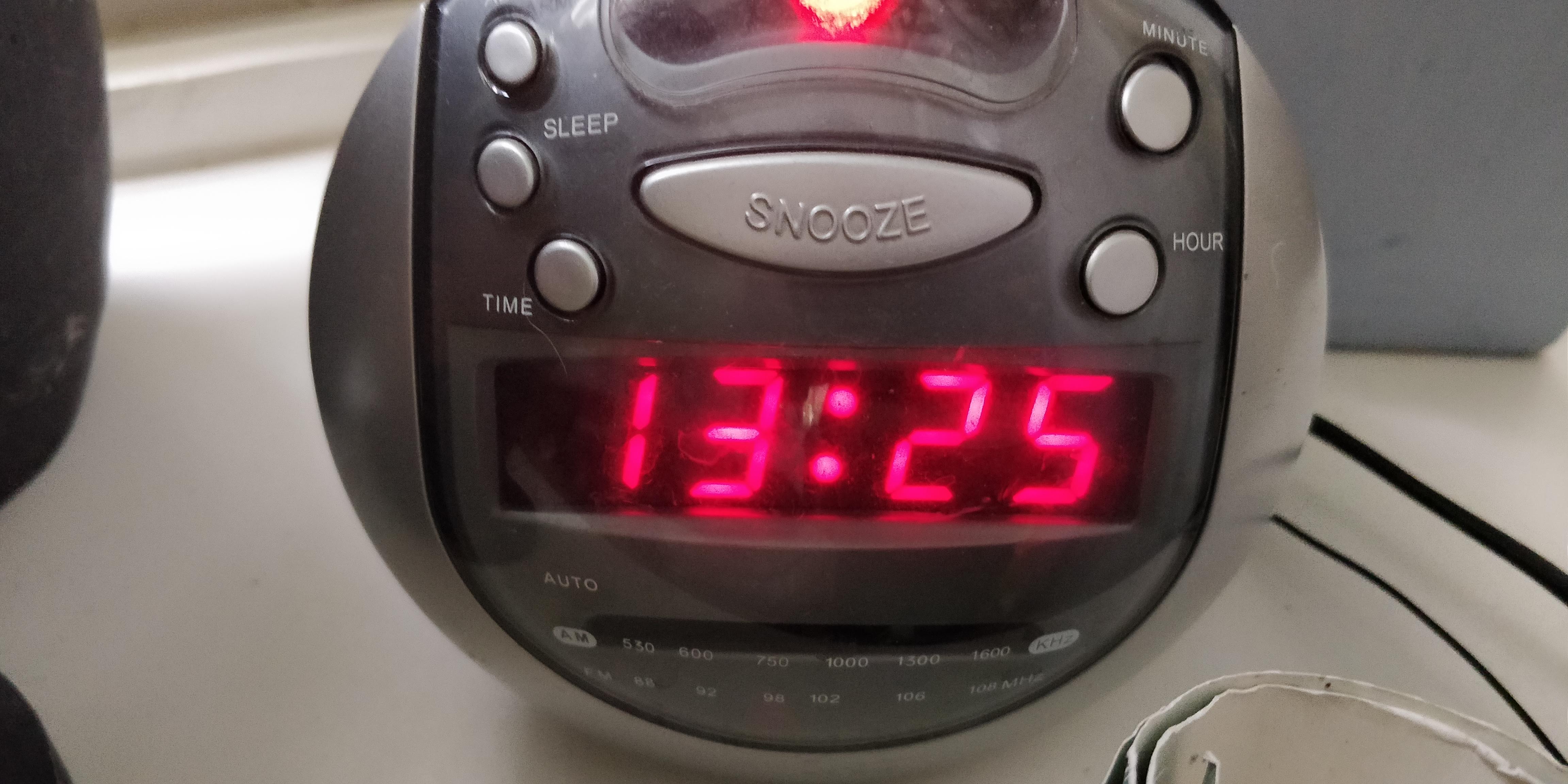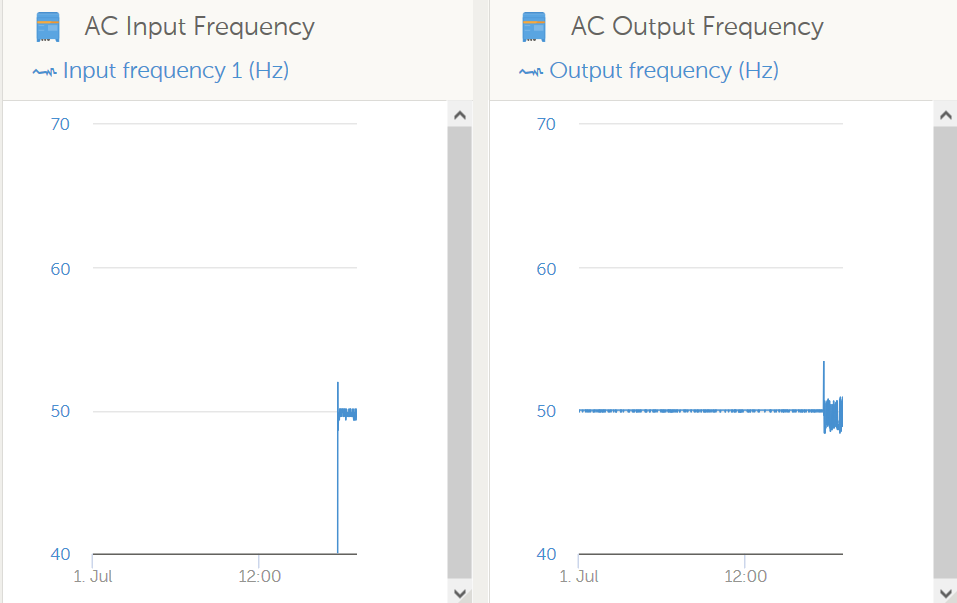I have a grid-coupled ESS system, with PV on the AC output of the MultiPlus and feed-in to the grid enabled. So I have frequency shifting enabled, in case I get more PV power than I use in a power cut situation. But normally the frequency should never shift, when the grid is working, right?
Well, my alarm clock is off ALL the time. Around 10 minutes per 24 hours, I guess.
How can this happen? And what can I do to solve this?

